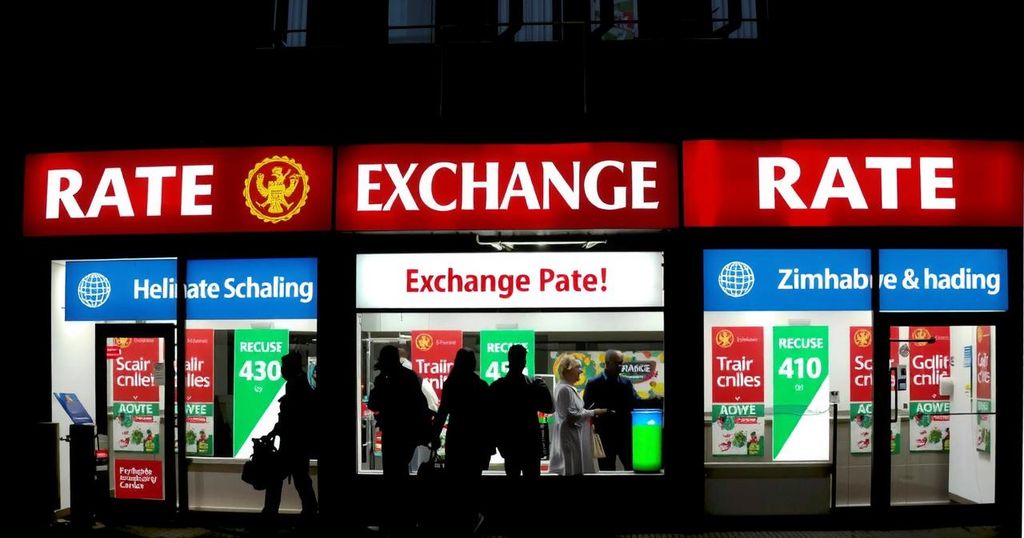Retailers in Zimbabwe are warning of potential store closures due to an overvalued official exchange rate imposed by the government. With the new gold-backed currency, ZiG, losing significant value on the black market, retailers argue they must operate at prices that exceed those in informal markets, driving away customers. The Retailers Association of Zimbabwe has urged for policy changes to protect the formal sector, highlighting unsustainable operating conditions if the issue remains unaddressed.
Retailers in Zimbabwe are expressing grave concerns about the sustainability of their operations amidst the government’s insistence on utilizing an official exchange rate deemed excessively high. Major retail chains, including OK Zimbabwe, Spar, and TM Supermarkets, have cautioned that continued adherence to this inflated rate could result in widespread store closures. Following the launch of the new gold-backed currency, referred to as the Zimbabwe Gold (ZiG), five months ago, the currency has faced significant depreciation, with its value plummeting nearly 80% against the black market rate, which currently ranges between 20 and 26 ZiG per US dollar. In compliance with government regulations, retailers are mandated to set their prices according to the official exchange rate of 14.8 ZiG per US dollar, under threat of penalties. However, the retailers contend that this mandated rate renders their products pricier than those sold in informal markets, consequently discouraging potential customers. The Retailers Association of Zimbabwe (RAZ) articulated their position in a letter to the Ministry of Finance, asserting that the present circumstances are unsustainable, adding, “The situation is clearly untenable and will lead to company closures if authorities do not intervene with policy measures to protect the formal retail sector.” The retailers also pointed out that while they are required to comply with the official rate, their suppliers charge according to black market rates, compelling them to increase prices to maintain profitability. They expressed a desire for a pricing strategy that reflects true market fluctuations, which would support competitiveness amid rising costs. The treasury has yet to provide a response to these pressing concerns.
Zimbabwe is currently navigating a challenging economic landscape characterized by a history of unstable currencies. Following multiple failed monetary reforms over the past 15 years, the introduction of the Zimbabwe Gold (ZiG) currency was seen as a potential solution to stabilize the economy. However, significant depreciation in the currency’s value against alternative markets has raised alarms within the retail sector. The government’s strictly enforced pricing based on an official exchange rate is creating operational difficulty for retailers by rendering their goods more expensive than those found in informal settings. The dynamics of this situation reflect broader economic issues within Zimbabwe, including lack of confidence in governmental fiscal policies and the detrimental effects of hyperinflation.
In conclusion, Zimbabwe’s retailers are at a critical juncture, facing potential closures as a result of government-imposed exchange rates that do not accurately reflect market realities. The significant discrepancy between the official and black market currency valuations is straining the viability of formal retail outlets. Without swift and effective policy interventions to address these concerns, the formal retail sector may face severe and irreversible consequences, thus necessitating urgent attention from government authorities.
Original Source: www.investing.com







